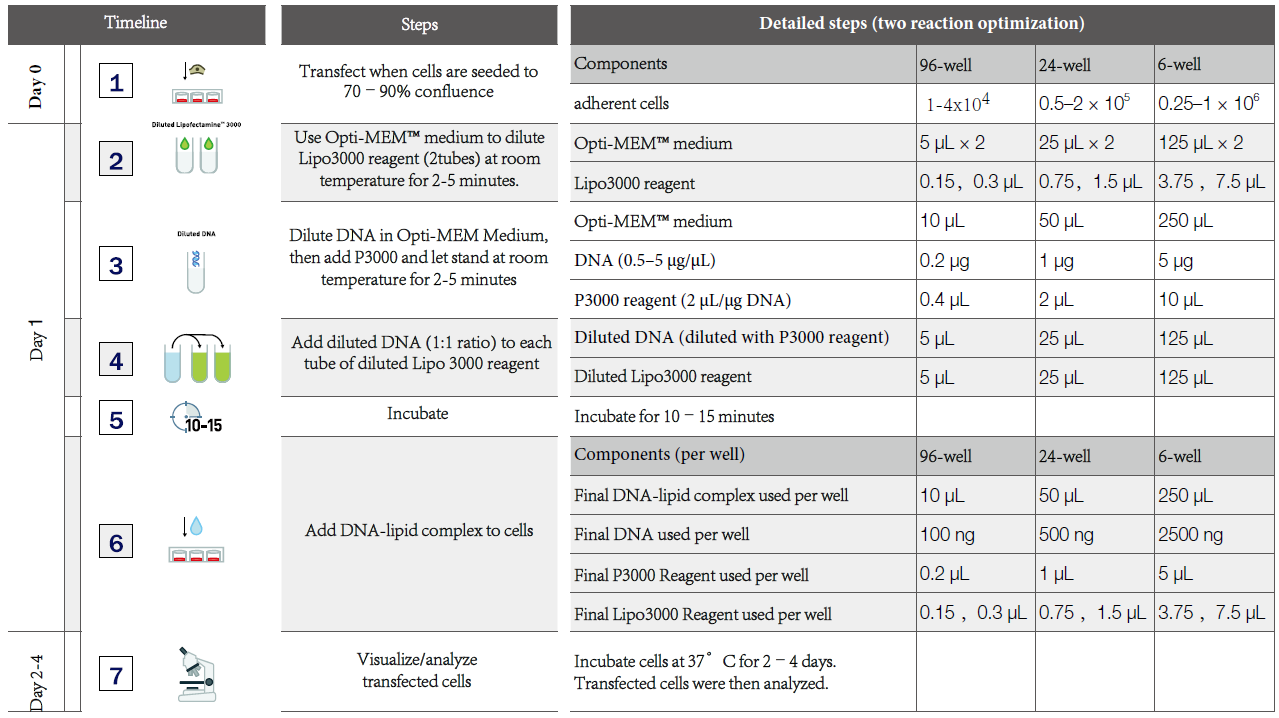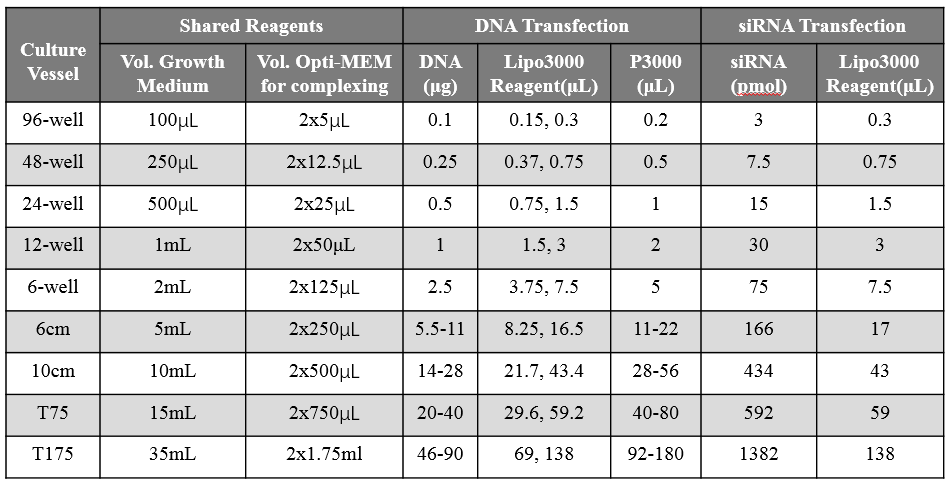GMax™ Liposome3000 Transfection Reagent (Synonyms: Lipo8000) |
| Catalog No.GK20006 |
GMax™ Liposome3000 Transfection Reagent contains liposome nanoparticle technology, which can provide excellent transfection performance and improve the results and reproducibility of related applications.
Products are for research use only. Not for human use. We do not sell to patients.

Sample solution is provided at 25 µL, 10mM.
- Mol Cell Biochem 476.10 (2021): 3757-3769.PMID:34097192
- Front Cell Dev Biol 9 (2021): 727822.PMID:34790659
- Cell Cycle 21.3 (2022): 228-246.PMID:34965191
- Int J Biochem Cell B 155 (2023): 106359.PMID:36586532
- Eur J Pharmacol 940 (2023): 175391.PMID:36400161
- Front Microbiol 13 (2022): 944101.PMID:35992663
- Immun Inflamm Dis 11.6 (2023): e883.PMID:37382273
- J Cardiothorac Surg 18.1 (2023): 222.PMID:37420297
- Nat Commun 14.1 (2023): 2430.PMID:37105976
- Int J Oncol 64.1 (2024): 1-13.PMID:38038147
- Theranostics 14.1 (2024):75.PMID:38164137
- Heliyon (2024).
- eGastroenterology 2.1 (2024).
- Mol Med 30.1 (2024):83.PMID:38867145
- Front Genet 15 (2024):1308737.
GMax™ Liposome3000 Transfection Reagent contains liposome nanoparticle technology, which can provide excellent transfection performance and improve the results and reproducibility of related applications. This reagent has excellent transfection efficiency and can improve cell activity, and is widely used in difficult to transfect and common cell types (such as HEK293 and Hela cells). In the process of successfully transfecting a wide range of cell types related to biological research, this reagent can:
• Provides excellent performance-our reagents that achieve the highest transfection efficiency for cell types that are difficult to transfect (the cell types that can be efficiently transfected include: fibroblasts (3T3, COS-7), myoblasts (C2C12 , L6 CRL-1458), liver cells (HepG2, HuH7), red leukemia cells (K562), breast cancer (MCF7, Hs578T), prostate cancer (LNCap), lung cancer cells (A549, NCI-H460), osteosarcoma cells ( U-2 OS, Saos-2), colon cancer cells (Caco2, SW480), pancreatic cancer cells (PANC-1) Skin melanoma cells(SK-MEL-28)
• Improve cell activity-gentle on cells and very low toxicity (this liposome dosage can maintain a high transfection efficiency in a wide dynamic range, and can be optimized easily and quickly as needed. For related applications where damage is minimized, the use of low-toxic liposomes is recommended)
Average Rating: 5 (Based on Reviews and 39 reference(s) in Google Scholar.)
GLPBIO products are for RESEARCH USE ONLY. Please make sure your review or question is research based.
Required fields are marked with *




